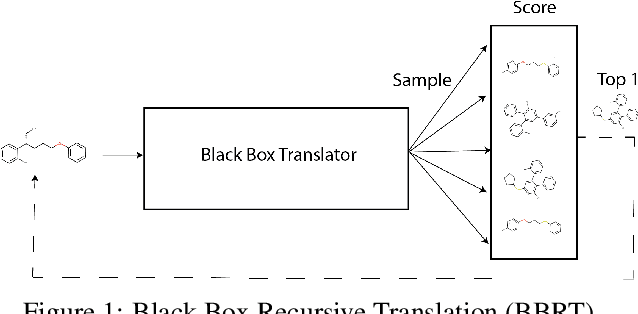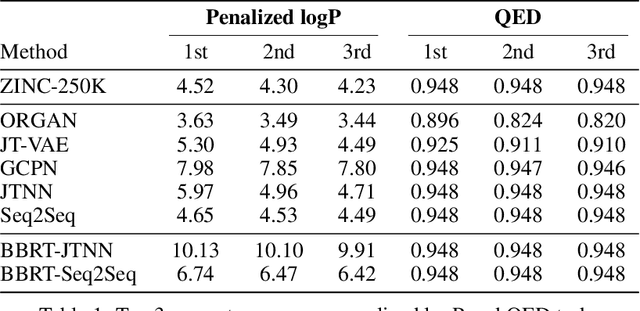Black Box Recursive Translations for Molecular Optimization
Paper and Code
Dec 21, 2019



Machine learning algorithms for generating molecular structures offer a promising new approach to drug discovery. We cast molecular optimization as a translation problem, where the goal is to map an input compound to a target compound with improved biochemical properties. Remarkably, we observe that when generated molecules are iteratively fed back into the translator, molecular compound attributes improve with each step. We show that this finding is invariant to the choice of translation model, making this a "black box" algorithm. We call this method Black Box Recursive Translation (BBRT), a new inference method for molecular property optimization. This simple, powerful technique operates strictly on the inputs and outputs of any translation model. We obtain new state-of-the-art results for molecular property optimization tasks using our simple drop-in replacement with well-known sequence and graph-based models. Our method provides a significant boost in performance relative to its non-recursive peers with just a simple "for" loop. Further, BBRT is highly interpretable, allowing users to map the evolution of newly discovered compounds from known starting points.
 Add to Chrome
Add to Chrome Add to Firefox
Add to Firefox Add to Edge
Add to Edge